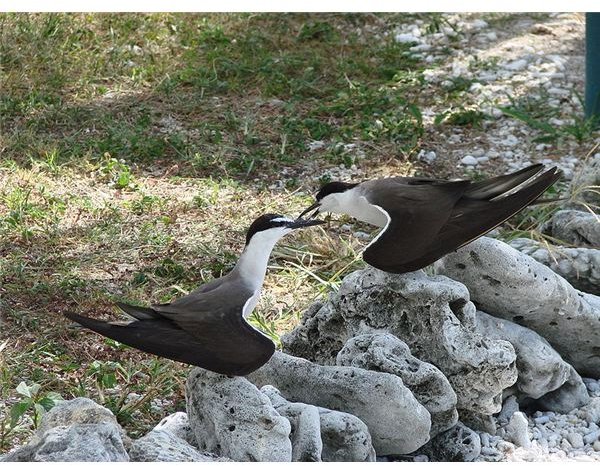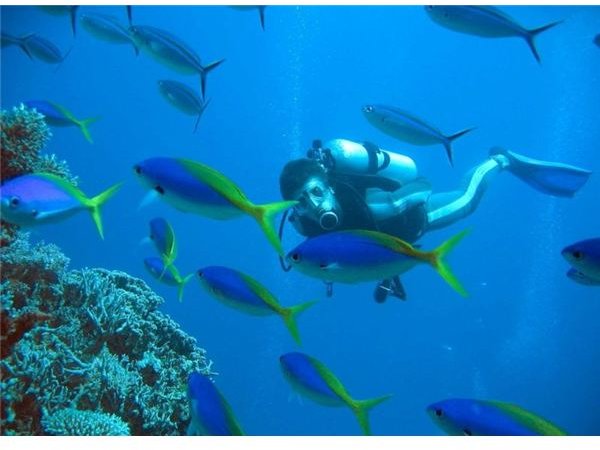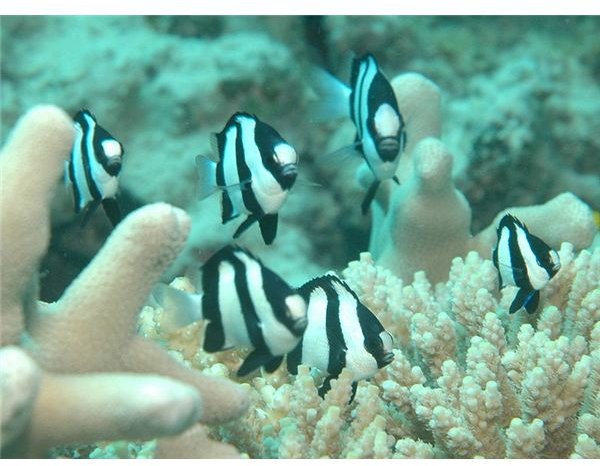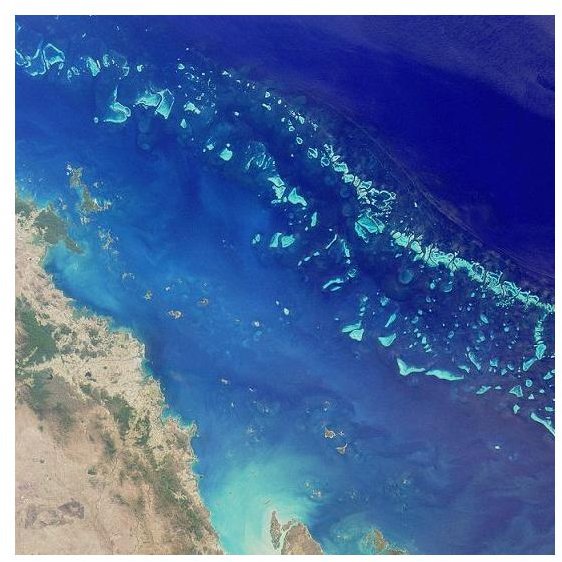Join Great Barrier Reef Ecotourism Activities & Help Researchers Gather Up-to-Date Coral Bleaching Data
What is the Great Barrier Reef?
Visiting Australia became even more interesting ever since the ecotourism operators gained the support of the Australian Tourism Industry Council. If you find yourself planning for a Great Barrier Reef ecotourism experience, a certified ecotour might prove to be a better choice.
Certified ecotours provide guides who can ably discuss the ecological significance of the place, which will add to your appreciation. In addition, they will raise your awareness about the coral bleaching from which the reefs are suffering, as brought about by natural causes and by tourist activities..
For those who are not too familiar with this famous ecowonder, the Great Barrier Reef is a collection of beautiful coral formations scattered in Australia’s east coast . It’s aptly described as great because it covers about 300,000 square kilometers consisting of 3,000 reefs that formed into varying sizes of islands and cays ranging from 1 up to 10,000 hectares each.
These coral reefs serve as habitats to a multitude of marine life and sea creatures. Hence, a visit to these vast collections of habitats is also a chance to see the most diverse and colorful marine flora and fauna.
This world wonder, however, is estimated to be 18 million years old and is believed to have survived whatever changes the Earth has been through. According to researchers, it emerged out of the Ice Age era as a collection of terrestrial elements. It’s a great place to visit by way of the certified Great Barrier Reef ecotourism programs, where tourists can walk, snorkel or scuba dive to explore the reefs during low tide or underwater.
What are Included in the Great Barrier Reef Ecotourism Activities?

Great Barrier Reef Cruise- An ecotour cruise includes spending at least four hours in one of the picturesque reef cays, Michaelmas Cay. While on board a state-of-the-art catamaran, which departs from the Cairns Marina, you will cruise the Great Barrier Reef to a cay where coral gardens abound and are teeming with diverse and colorful marine life. Michaelmas Cay is one of the favorite ecotour locations because it is where tourists can find a protected seabird sanctuary.
Great Barrier Reef Snorkeling - For those who do not know how to dive but would want to experience exploring the wonders of what lies a few feet beneath the waters, join a certified ecotour snorkeling trip. It doesn’t matter if it’s your first time to snorkel, since certified ecotours can provide you with hands-on and in-water tutorials handled by highly competent instructors. Newbie snorkelers will find friendly and professional crews, who readily provide assistance and guidance to make sure the snorkelers won’t be straying off to restricted areas. Part of the operator’s compliance to excellence in providing these kinds of ecotours, is to maintain and furnish only the highest quality in underwater equipment and devices, which include optical masks.

Great Barrier Reef Boat Diving Tours- Another form of ecotour is by way of boat diving activities where you will be transported to ideal locations like Opal Reef, St. Crispin or at Agincourt. You can join a small group of divers headed and handled by professional dive masters and instructors. These are of course for those who are already with experience in deep-sea diving. In fact, those who haven’t had a dive for the last 12 months will be given a refresher course just to ensure that they still have the essential skills needed for deep-sea diving. Diving gear and equipment are available for rent while each diver will be provided with inflatable surface markers and Mares Puck dive computers to make certain that divers are kept safe.
Glass Bottom Boat Tours- You will be able to view all the beauty of the reef lagoons and beauty of the coral gardens underwater via the boat’s glass-bottom. If you want to have a taste of underwater experience but cannot muster the courage to go snorkeling, this kind of eco-trip will be the right one for you. Certified Great Barrier Reef ecotourism activities always have Marine Biologists on board, to serve as tour guides who can furnish tourists with the ultimate experience of both mind and sight. Learn and see underwater visuals of colorful flora and fauna by observing the other side of the glass bottom observatory.
Visit the Great Barrier Reef and Be Part of a Research Group

However the Great Barrier Reef’s ecosystem is said to be endangered, as the coral formations are undergoing ecological destructions brought about by the effects of global warming conditions.
The University of Queensland in Brisbane, Australia organized a movement called Coralwatch, in which participants of Great Barrier Reef ecotourism activities, would volunteer to provide real time coral bleaching status reports. Through user-friendly Coral Health Charts, visitors to the Great Barrier Reef Marine Park could send-in real time coral bleaching monitoring data to the university’s research groups.
All the volunteer visitor has to do is to check out the actual coral colors and find their color match right in the color chart. This way, everyone including school children and tourists from all walks of life will understand the detriments that the corals are presently going through. Participants can input the matching color code, coral species and coral type by accessing the data sheet found at the Coralwatch Website at www.coralwatch.org.

Another way to help out is to join as a diver or snorkeler of Project Aware. By participating in this program, you will be making your underwater adventures more meaningful. Divers and snorkelers can take part in cleaning-up reef debris thrown carelessly by some uncaring tourists or visitors. Divers or snorkelers can contribute data needed by the University Research Center.
The research center believes that additional real time information, which they usually derive from satellites can be gathered by working hand in hand with the many who explore the Great Barrier Reef underwater via ecotours. In case you’re planning to visit Australia and be interested in participating with the Great Barrier Reef ecotourism activities, visit the Coralwatch or Project Aware websites to know the exact data needed by the research center .
References:
https://www.ecotourism.org.au/eco_certification.asp
https://www.peopleandplanet.net/doc.php?id=2094
https://www.coralwatch.org/default.aspx
https://www.reefhq.com.au/home/about_us/the_gbr
https://www.journeys.travel/info/great_barrier_reef
Images Courtesy of Wikimedia
